|
When I first came on this trip, I told myself that it would be over soon. At times, it didn't feel like it would ever end. However, now that we're at the last stage of our trip, I feel strangely sad that our time here is coming to an end. Yes, at times this journey has seemed impossible, but every tropical rainstorm and whiff of rotting fish bait has ultimately only added to the experience.
On our last day of fieldwork, we emerged from the forest dirty and bedraggled, but smiling, a far cry from our first, when I was too tired to even think about how breath-taking the Amazon truly is. On that last day, I no longer cared about the irritating mosquitos, the knee-deep bogs and the waist-high logs we had to clamber over. I only felt a profound sense of pride and wonder that I had been lucky enough to be able to see this incredible place. Preparing to leave, we pack up bags and boxes and memories, snatching a last few precious moments with the friends we have made here. It's strange to even think about going home, but I am excited to see how the work we have done here translates into results and conclusions over the next year, and the impact this research could have in helping preserve this amazing place. I'm so grateful for the opportunity to come here, and also so proud of what we have achieved here. And, after seeing so much of the natural beauty this place has to offer, from flowers and trees to macaws and jaguars (!!), I can only hope that more people join the fight to help preserve such a rich and diverse habitat as the Amazon. I certainly hope that, in our time here, we have helped make a difference. I'd like to close with a quote that I think perfectly encapsulates our time in Peru - "In spite of the filthy surroundings we strike out with the butterfly-net and are glad to succeed in taking the animals without having seriously befouled the instrument. But even so we notice the remains of the disgusting meal on the surfeited animal, and with a feeling partly of loathing partly of pleasure we drop the butterfly into the bag. When opening it in the evening, however, our olfactory nerves once more remind us of the joy and sorrow of catching butterflies in the tropics." (Bernard D'Abrera) Mahika
0 Comments
It is rather surreal coming home; the comfort, safety, clean water, small things we normally take for granted now feel like such luxury. Its satisfying too, knowing that we have completed what we set out to do. The expedition was an enormous success and we have heaps of interesting and valuable information; butterfly data, logging data, data on canopy openness, temperature and humidity, all which will help us understand the impacts of logging on butterflies and forest microclimate. I start my MRes in a couple of weeks and will spend the next year analysing our findings and communicating our results to the scientific community, GreenGold Forestry Group and the public. I have every hope that this project will inspire the civic and scientific community, help inform sustainable forest management strategy and provide a foundation for future research in our study area…this is just the beginning! Personally, if I can communicate the serenity I felt staring in wonder up at a 150ft giant, spying the ecosystems hidden between its limbs and at the end of its far-flung branches, then I have achieved something. If I can propagate the associated disappointment, sadness and frustration I feel that anthropogenic actions threaten this unique forest ecosystem, perhaps more people will try to break our habit of overexploiting nature. I wonder how many more generations will live in a world with clean air, towering trees and beautiful butterflies, when our demand for energy and resources is so high that we destroy the rainforest at an annual rate of 18 million acres? When eventually the lungs of our planet become so thirsty they cannot breathe – what then? And though this concern fires my enthusiasm to take action within my own capacity, I can’t prevent the pessimistic and underlying question, will our efforts ever be enough? Through scientifically-informed forest management and collaborative conservation action, I have every faith they can. The combined support and efforts of people with a heart for nature, the influence of inspirational figure heads and willingness of organisations such as GreenGold Forestry Group to adapt their enterprise to minimise ecosystem damage and biodiversity loss, gives me hope for the future. A future, not for our planet, since our behaviour will not stop it turning, but to safeguard the kind of world we want to live in. Tish Week Seven
When a rainstorm hits its always reassuring to know that our traps are up and butterflies safe. Coming to the end of our fieldwork season, every collection day counts and we have fingers crossed that our third and final sampling cycle will be as successful as the first. For this cycle we hung traps in a section of the concession logged 5 years ago. Admittedly this area of forest is fairly disturbed, but it will be interesting to see how the butterfly population and microclimate has recovered since then. Already we've noticed differences, in the vegetation, terrain and general feel of the forests. Whether the latter has more to do with weather conditions, our own tiredness or the sheer number of bitey things I'm not certain. However I am excited to see if these differences are reflected in the temperature and humidity data we are collecting from each site. One thing I will say is that for some reason there are more mosquitoes in this 'old logged' forest than I have ever experienced before. Enter, and within seconds you are swarmed by the little nasties. That tinnitus-like drone in your ears is constant, the harassing of your face and body, unabating. However, we managed to get to the field earlier than normal the other day and avoided the mosquito plague - much to our relief! It was a wonderful morning. Rays of sun filtering through the canopy and a million sounds to excite any biologist, such that despite the piles of logs we had to clamber over and sticky bog we had to wade through, I felt totally elated by the beauty of our surroundings. That is the thing, working here is like riding a rollercoaster of emotions. One minute you are waving your arms about in blind fury, the next you are gazing with wonder up at towering giants, admiring their opportunistic epiphytes or the diversity of curious fungi at their trunks. Some days, everything runs smoothly and others it all hits the fan. As anybody who has done it before would agree - these are the joys of fieldwork! Tish Week Six
It feels like, till now, this trip has been a mad rush of macheteing through the forest, chopping rotting fish, collecting butterflies and processing them, with only the occasional broken-down car or rainy day to add a little spice. Welcome to Peru! However, staying here at Camp 2, in what is quite literally the middle of nowhere, has been a welcome change to our daily routine. Here you can't sleep past 5:30 am due to the workers' morning ritual of playing music. Food is cooked over an open fire, and our bathroom is the boundless rainforest surrounding us. Yes, working here is hard - there is a gruelling hour's walk in the forest to reach our sites. Yes, every insect here wants to bite us. But, here, in what is nearly untouched primary forest, one feels at peace in a way that is simply impossible anywhere else. Our first night here, Tish and I just lay back and looked at the stars; it's like being surrounded by the night sky, with only the occasional shooting star or firefly able to draw your attention away from the sheer magnificence in front of you. And that is the beauty of fieldwork - though at times it is difficult, and you want to give up, there is something inherently rewarding about it. Sorting butterflies in our makeshift lab, we are surrounded by curious workers, asking us which butterflies we are holding and what we are going to do with them. Before long, the workers themselves can identify a 'Morpho' butterfly and pay rapt attention as each sample is meticulously recorded onto our spreadsheet. Here, it seems like our work is appreciated and respected more than it could ever be back home, with the distracting bustle of city life. I'm so glad and so incredibly grateful to be here. !Bienvenido a Peru! Mahika Week Five
Yesterday we took the butterfly traps down in preparation for our next sampling cycle. It was an interesting venture into the forest to say the least. With a team member down and the space of an afternoon to clear all six sites, we were very pushed for time. Rushing from one site to the next, busy collecting butterflies, folding traps and clearing the grotty bait I almost missed the grumble of thunder in the distance. Within minutes the heavens opened and we were soaked from head to toe, at which point my plastic poncho seemed pretty useless! Droplets the size of marbles falling onto our faces, sweet petrichor filling our nostrils. I looked up into the canopy and smiled, because at that moment it didn't matter that my clothes were sodden, weellies full of water, hands stinking of rotten butterfly bait - I could only wonder at the force of an Amazonian rainstorm! We didn't stay long and today had the joyous task of cleaning the products of our mission. Normally butterfly traps can be attended to every other sampling cycle, but in this case the layer of inconspicuous exoskeletons, bodies, wings and other half-eaten debris was so deep that we could hardly fish out the butterfly wings. Butterfly traps seem to attract the very worst of the invertebrate kingdom. Cockroaches, crickets, wasps and spiders, these (and ants) take a special liking to tasty butterflies, though fortunately for us they don't eat the wings. Three friends from camp came to watch, with amusement and fascination, Mahika and I hastily scrub rotten fish off the trap sides, empty out the insect corpses and remove the lucky, though not so amiable survivors. By the end we had a bucket full of grim brown water, bodies floating on its surface and a pile of detritus on the muddy floor. Job done, and we were very glad for it - I'd chose a rainstorm over that mess any day! Ciao for now, Tish Week Four
Think it's about time I gave you a little insight into our work in the lab... A fantastic little office, somewhere I feel instantly at peace when opening my ears to the sounds of the forest (when the generator in not running!). At other times, the heat is unreal and we try our best to work efficiently, knowing that as soon as darkness falls the flies and mosquitos will descend on mass to harass our concentrated faces. It is the brain of our project, where decisions are made, equipment prepared, and each sample sorted and stored. Though the process of photographing every butterfly and recording all our data is a lengthy one, it is very rewarding to see the results of a hard collection day. In addition to the boxes of bags, rope, face masks, gloves, helmets... We have some new 'stuff' that who else but a pernickety scientist would get excited about - fresh envelopes, tubes and fitted labels, thank you Gabriela! How the small things can make research a million times easier. I don't want to know how much time we've spent before this cutting tiny pieces of paper to fit the tubes and making envelopes for the butterflies - futile tasks now history. I suspect that some of the workers wonder what on earth we get up to in the lab, busying about with laptops, strange equipment, plastic cups, string and polystyrene take-out dishes (these we use to make waterproof houses for the temperature and humidity data loggers). I often explain (in somewhat limited Spanish) the purpose of these exercises and am pleased to say that many people take an interest, though some, despite my attempts, will still stand there looking blank and bewildered! I know that a majority do care as much about the project as our own well-being, which is a great relief. ... on that note, I better get back to sorting butterflies! Saludos, Tish Field research is never without its difficulties. Consider the challenge part of an 'adventure package', a small price to pay for the experience of studying strange species, curious phenomena and for exploring one of the most beautiful places on the planet. Forget the million sweat bees swarming your face as you fumble around with fishing line, tying knots to hang a butterfly trap; I'm undeterred by the obstacle course we clamber through to reach our sites, hip-high logs, overhanging branches, swampy streams and mud that threatens to devour your entire leg, sharp, spiky, spiny plants at every corner set to trip or trap your clothing en-route to the butterflies. For me the hardest thing is this waiting game. Days of torrential rain make the road unpassable and our sites inaccessible. So we stay at camp, preparing all we can for the next sampling cycle, twiddling our thumbs and praying that the downpour might subside soon!
During this psychological battle we have kept ourselves entertained with other things. I taught my first yoga class in Spanish for the ladies on camp the other day (which unsurprisingly they found very amusing!) and we've spent a few moments sitting by the river to watch, listen and admire nature in all its splendour. One of the workers found an atlas moth which was very exciting, largest species in the world, feast your eyes on this! ¡Hasta lluego! Tish What a week it has been! Despite the unpredictable weather that makes the road unpassable for days at a time, we've managed to collect data on over 290 butterflies. From little stunners like Ancyluri to the grand and majestic Morpho, we've seen a range of species that is likely to extend as we make our way into the primary forest.
Our plan for next week is to explore this area of untouched rainforest. We will then compare it to recently logged (2016/7) and previously logged (2013) parts of the concession to understand the dynamics of forest recovery. Over the next couple of years, Green Gold Forestry Group (GGF) plan to harvest timber from our selected primary forest sites, so our data could provide an excellent foundation for further research too. I am excited about the science as much as the wildlife we might see, and the thought that we could be the first people to set foot on that patch of soil. In terms of wildlife, we've seen several jaguar tracks (one footprint the size of my hand!) as well as pink river dolphins 10 meters from where we were sat on the river bank, both equally overwhelming! One thing that I would like to mention over everything else is how grateful I am for the support we have received from GGF, who recently hired and delivered a 4x4 polaris for us to have more independence and better access to our sites, and to everybody working behind the scenes to make this project possible. I am excited for what data, discoveries and consequences come of our combined efforts, and to share this with you and a wider audience. Thank you, and I hope these little blogs are an enjoyable insight into what we are doing here in Peru. We have had 5 days at the logging concession of Green Gold Forestry Group (GGF). Things are going really well here in the jungle. We are making impressive progress, having decided on suitable sampling sites, cleared trails, set and baited 36 butterfly traps in no more than a week. The first cycle of butterfly collection is underway and we are excited to see the results of our efforts. Clearing a path through thick rainforest, working in the intense heat and humidity where everything wants a taste of your sweat, flesh or blood is no easy feat!
|
Details
AuthorWrite something about yourself. No need to be fancy, just an overview. Archives
September 2018
Categories |
Project Peru 2018
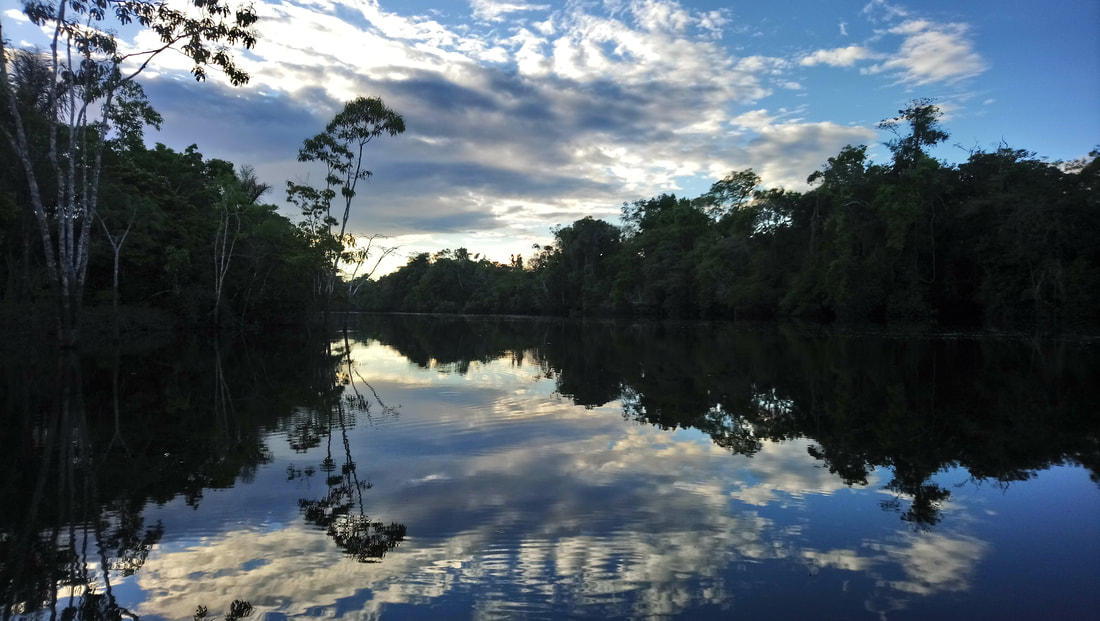
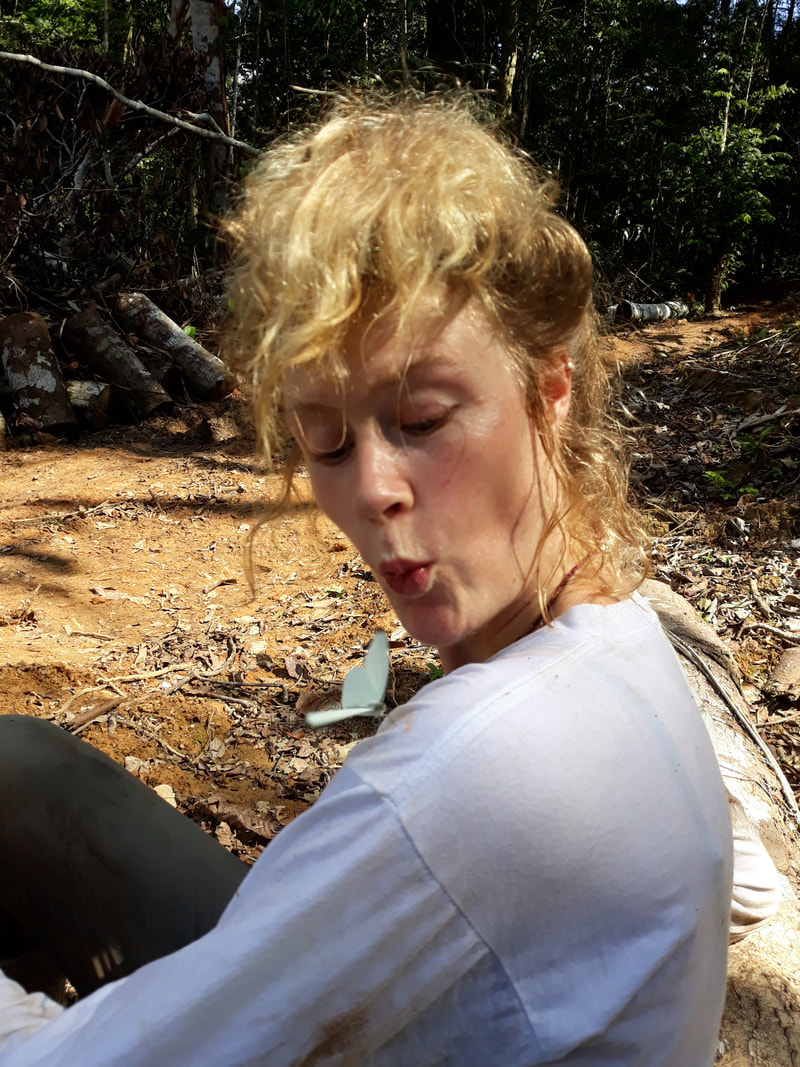
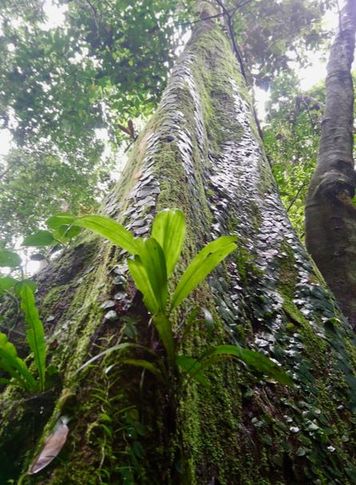
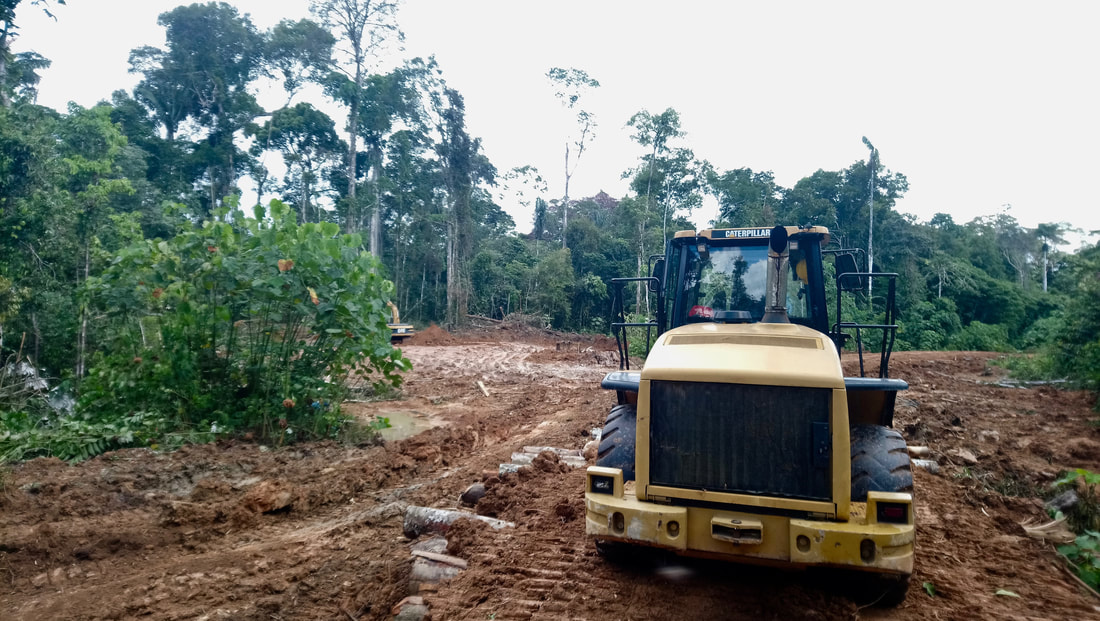
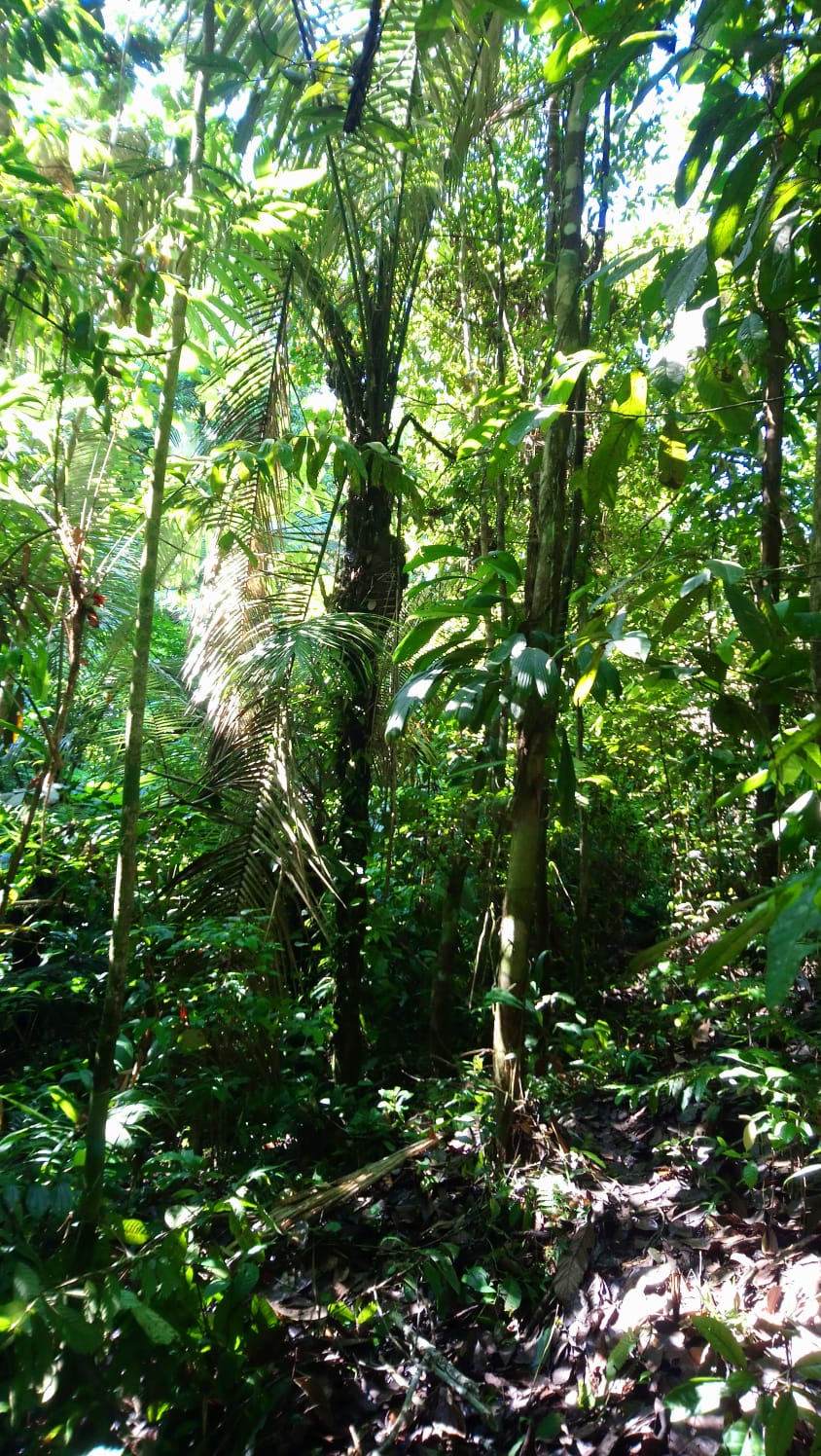
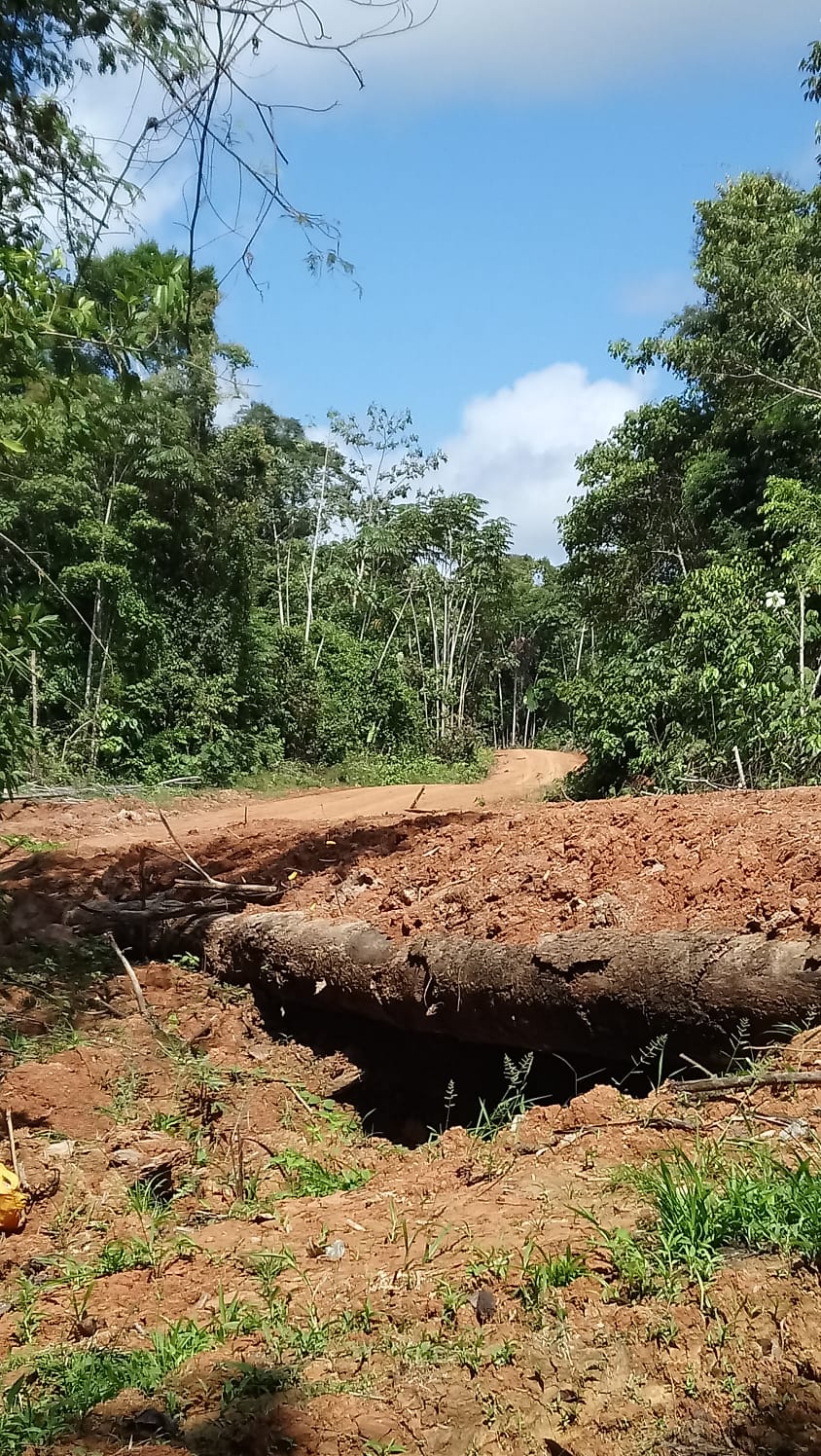
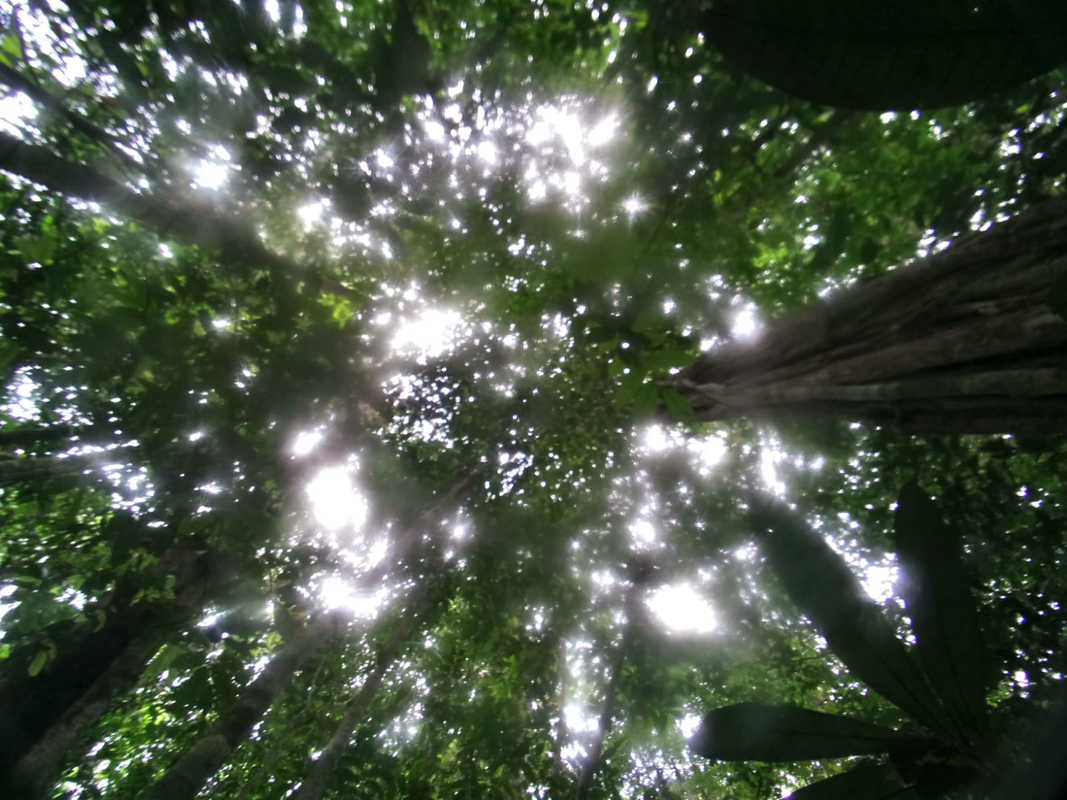
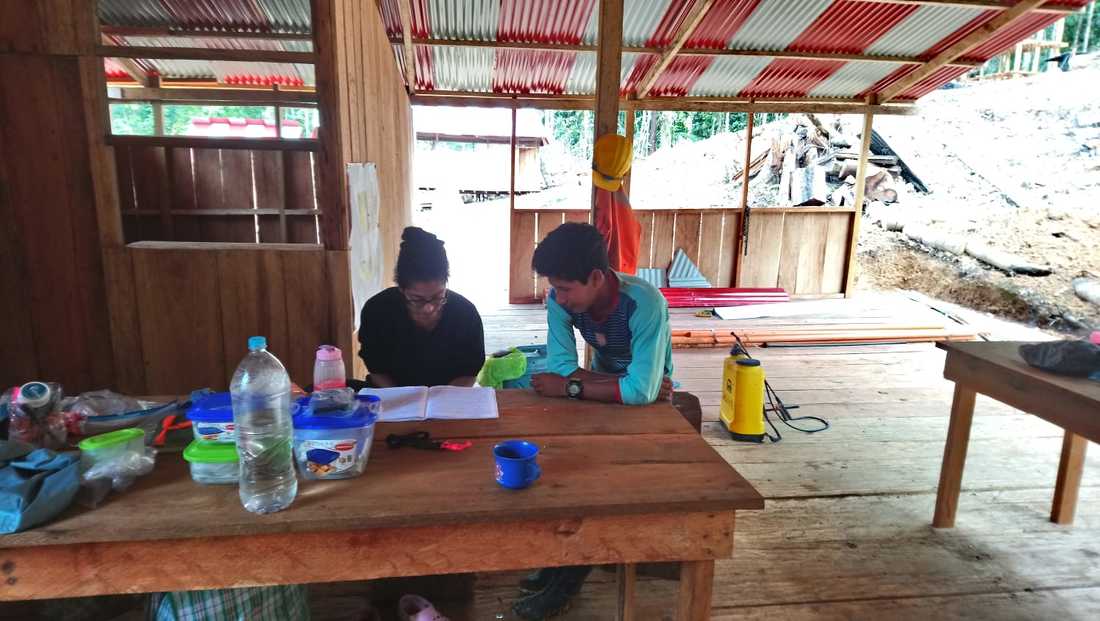
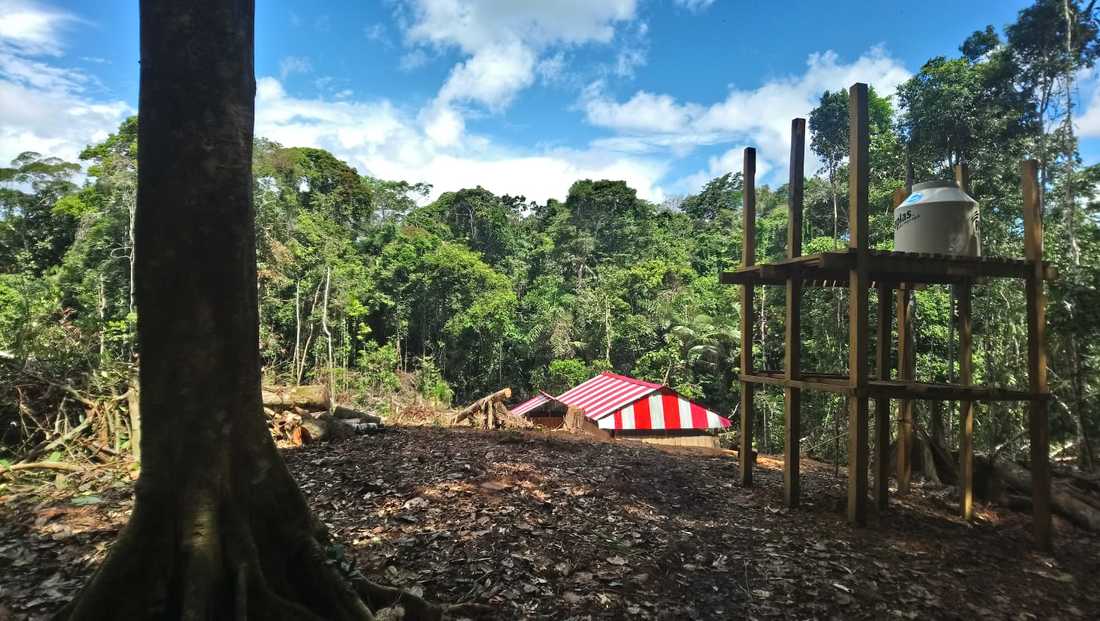
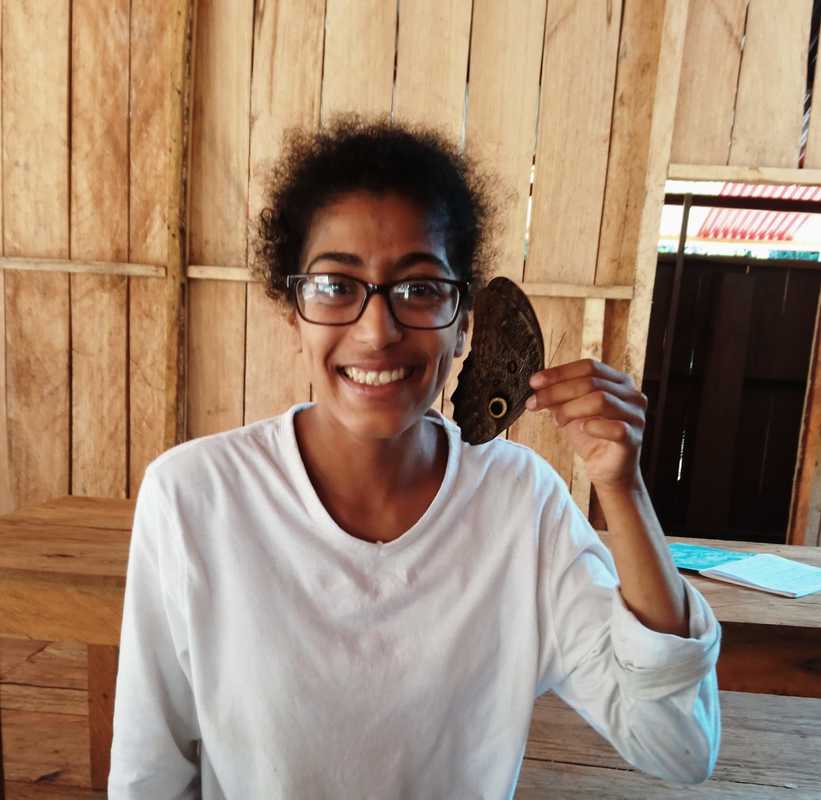
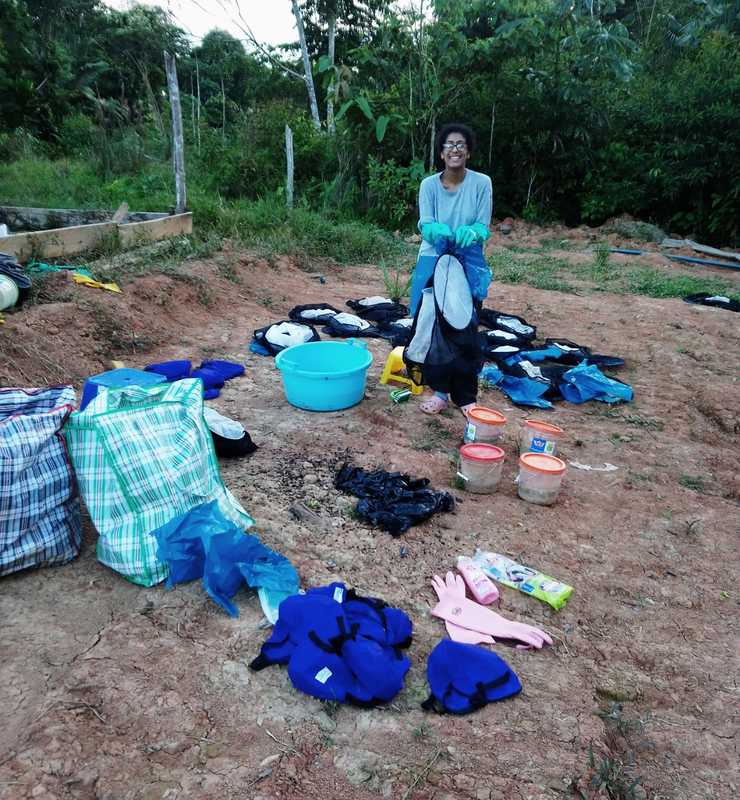
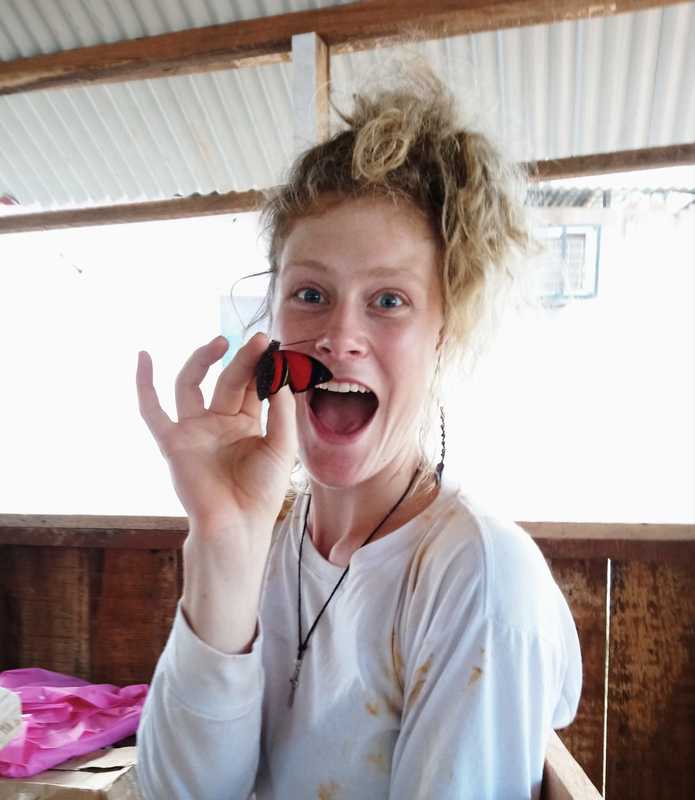
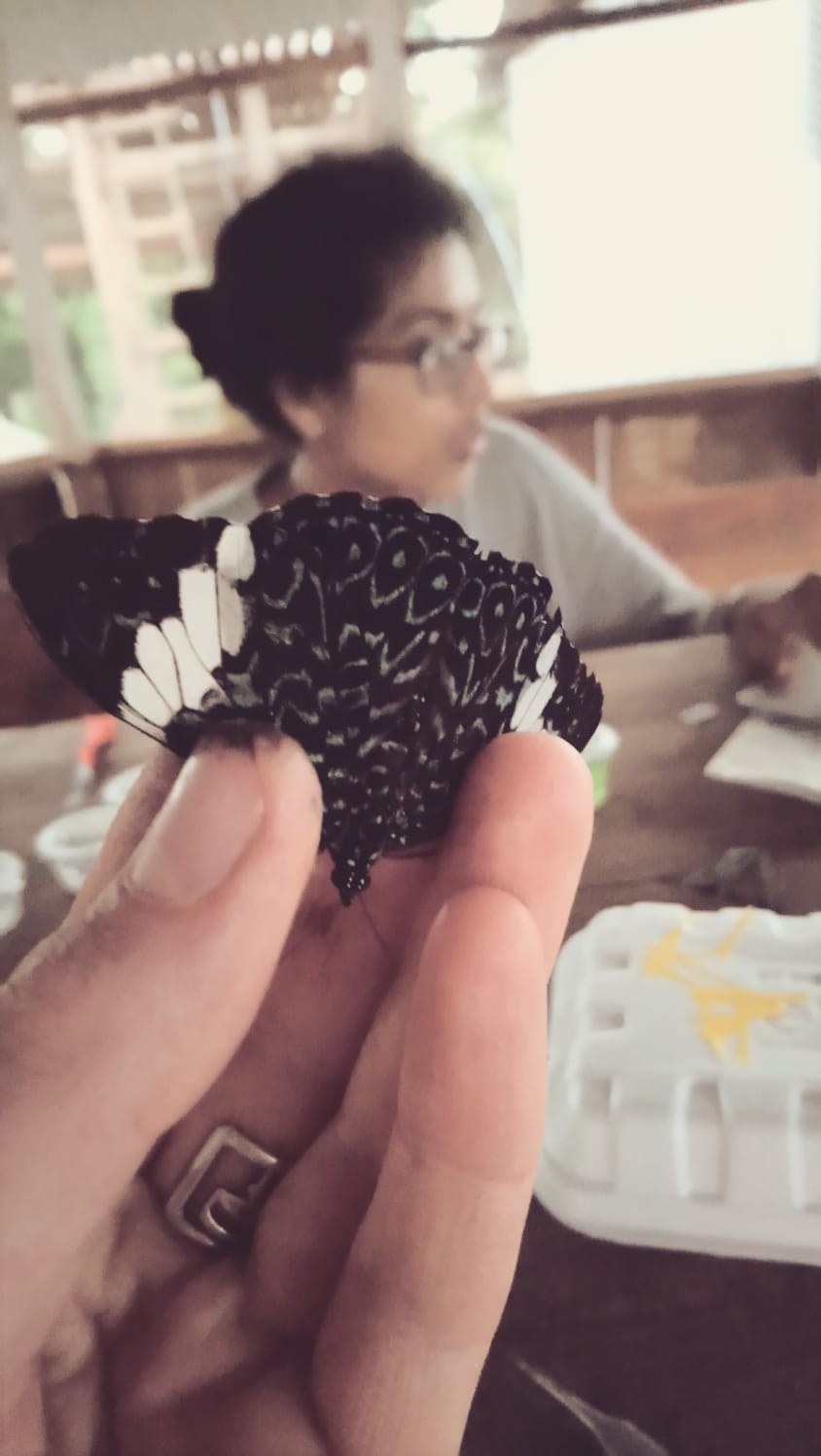
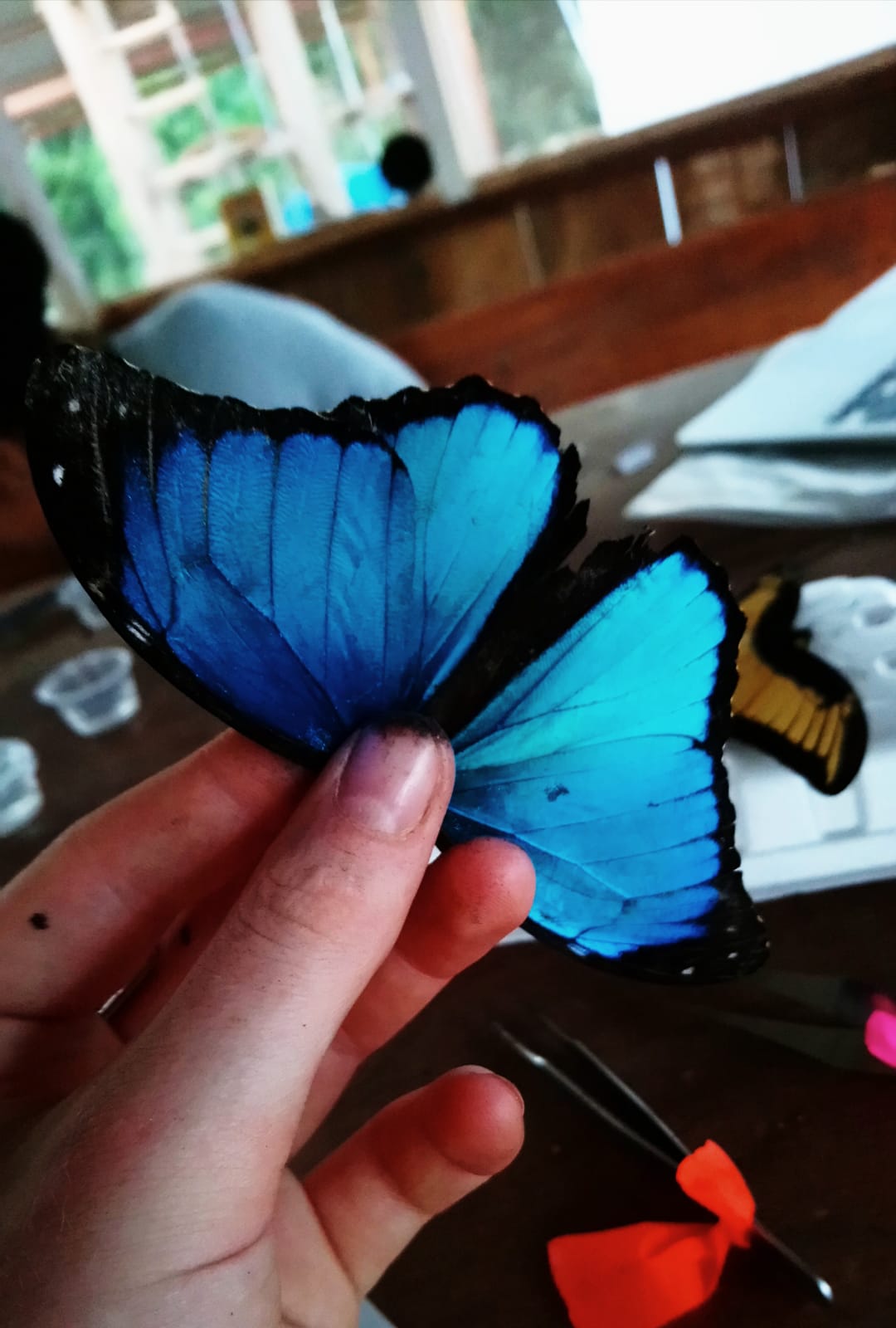
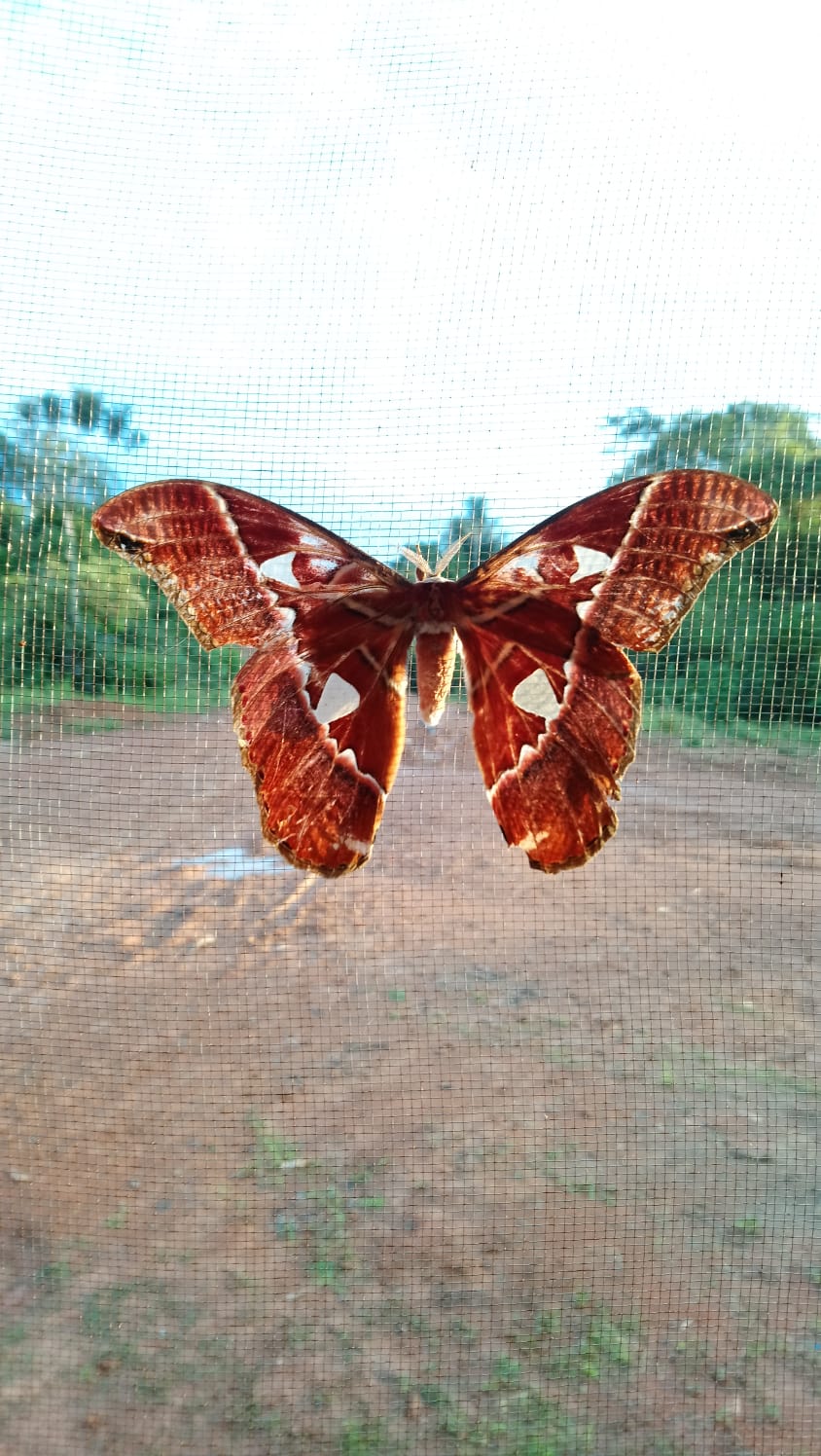
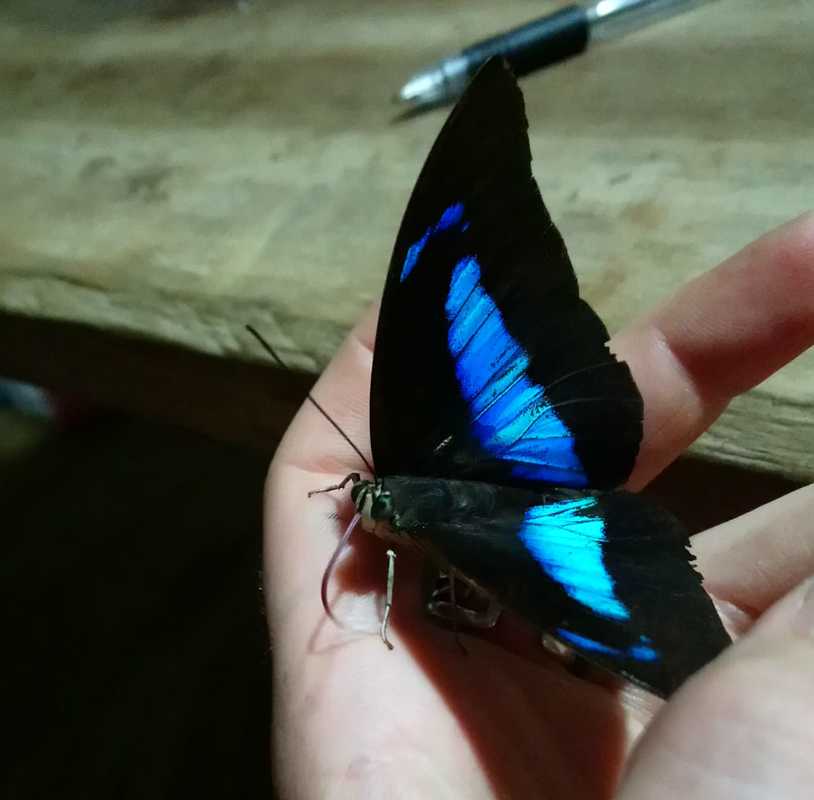
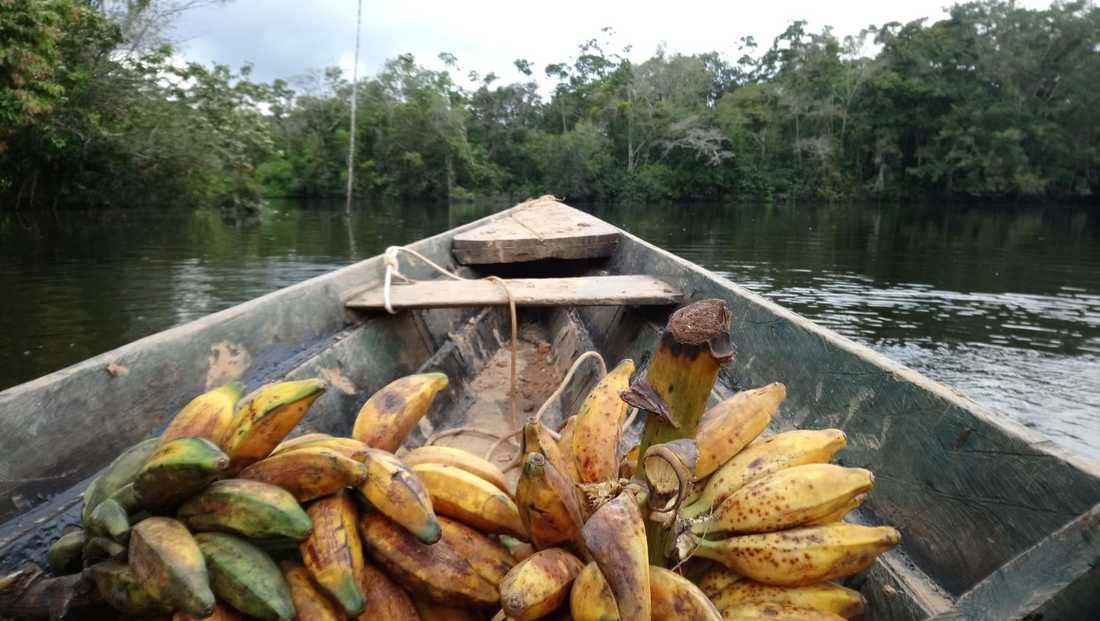
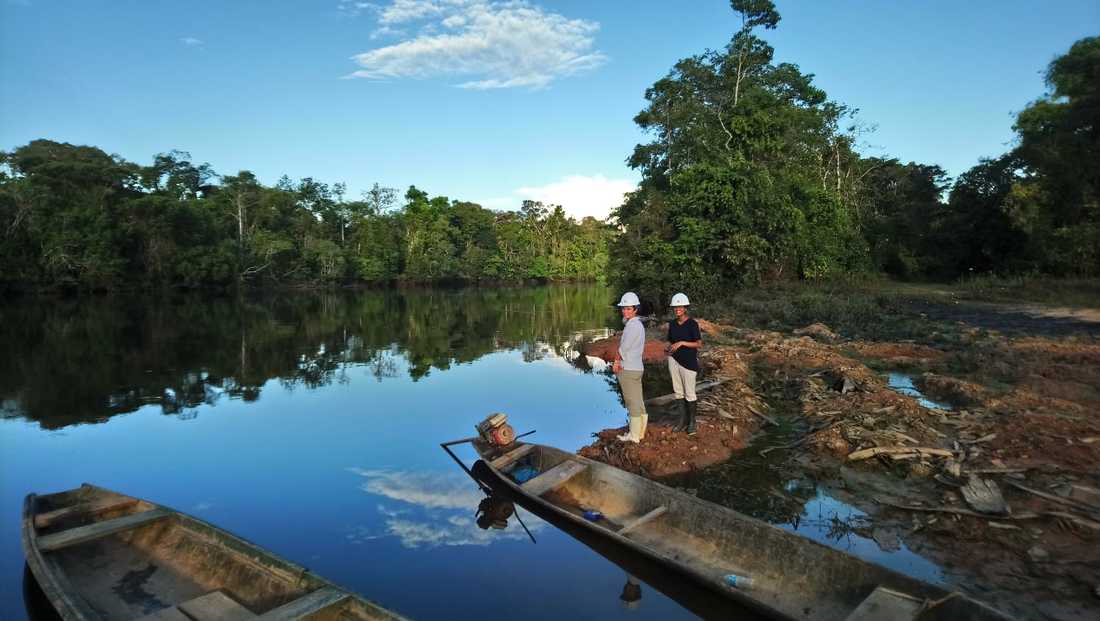
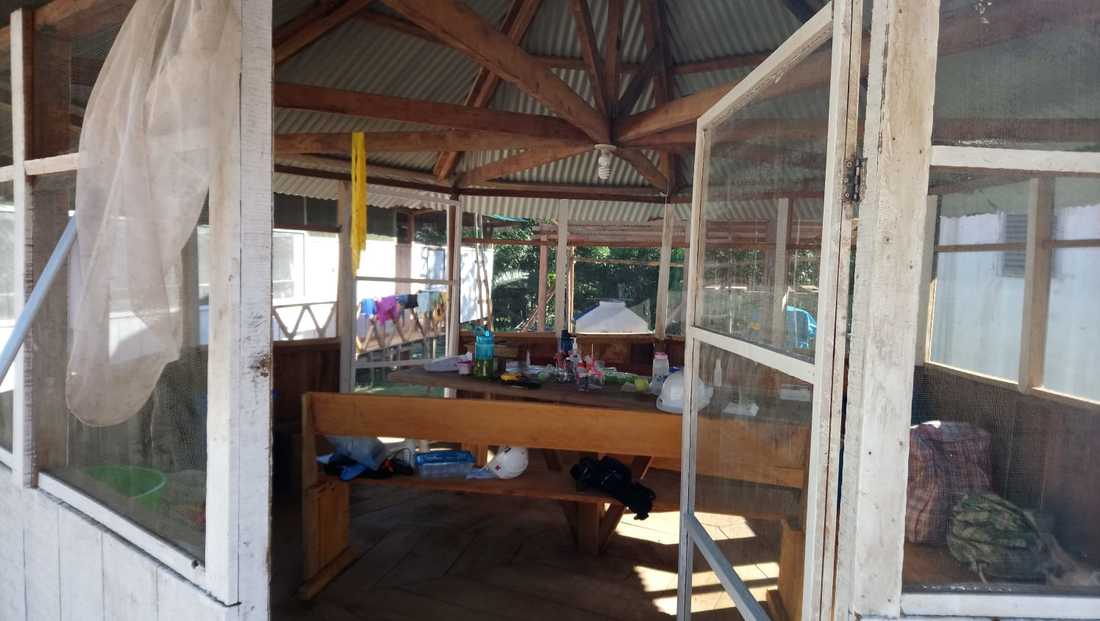

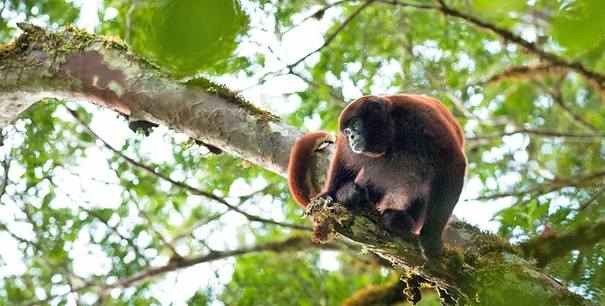
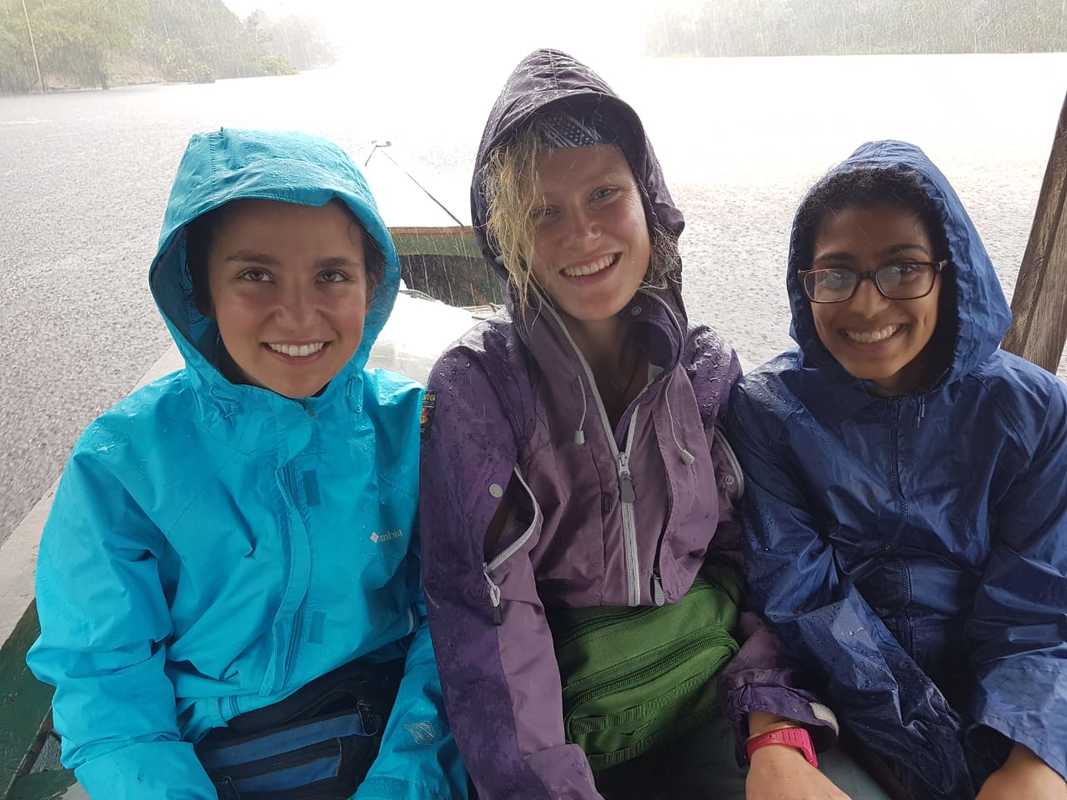
 RSS Feed
RSS Feed
